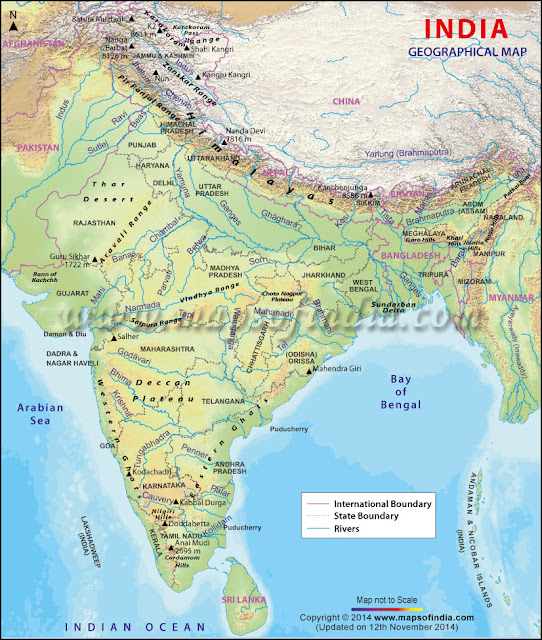Important Points About Jammu and Kashmir
ssc preparation, important competetion questions, current affairs of india, latest question asked in competetion papers,
Exams like SSC CHSL, SSC CGL, SSC MTS, IBPS PO, IBPS Clerk, IBPS SO, IPPB Sc. I, LIC AAO, etc. have a lot of questions related to India and its states. Questions based on various states of India form a large part of the General Awareness section of many government and bank exams. In fact, if you are thinking of appearing for state govt. exams, it becomes all the more important for you to know your state. Our latest GK Notes series – ‘Know your States’, will help you learn major facts, global importance, and culture of every state. This particular article will help you learn everything About Jammu and Kashmir in one glance.
Read the complete article to find out the history, economy, geographical significance, flora & fauna, important sites, tourist attractions, etc. About Jammu and Kashmir. You can also download this article as PDF to keep it handy.
Important Points About Jammu and Kashmir in PDF
The state of Jammu & Kashmir has always been a disputed land since the Independence of India. J&K is the reason of conflict between India, Pakistan and China. Jammu and Kashmir also called as the Venice of East. Since its formation, J&K is a centre of Extremist and Separatists powers. Though, some of the time this state is closed down due to curfew, tourists still flock the place to enjoy the natural beauty and the pleasant climate. This is why it is called the Switzerland of India.
| Jammu and Kashmir | |
| Capital | Srinagar (March – October) Jammu (October – March) |
| Formed on | Admitted to India on 26 October 1947 |
| Districts | 22 |
| Language | Urdu, Kashmiri, Hindi. |
| Known as/for |
Heaven of India
India’s northern-most state
The largest producer of saffron in India
Article 370 of the Indian constitution grants
special autonomous status to the state of Jammu and Kashmir. |
| Physical Characteristics |
Lies between six mountain ranges
-Zanskar Range
-Karakorum & Kyun Lun Range -Amarnath Range -Tosmaidan Range `-Pir Panjal Range -Shivalik Range
Comprises of three regions:
– the foothill plains of Jammu
– the lakes and blue valleys of Kashmir rising to alpine passes – the high altitude plains & starkly beautiful mountains of Ladakh which lies beyond narrow passes
Home to several Himalayan glaciers.
|
| Natural Vegetation | Cold desert in the north-east which converts to Himalayan moist temperate through the alpine and sub-alpine vegetation when gradually moving to the south and south-west |
| Major Rivers |
-Indus flowing from Tibetan plateau &
Gar Tsangpo to the Arabian Sea & Rann of Kutch
-Tawi flowing from Kailash Kund glacier
to the Chenab
-Ravi flowing from Chamba in Himachal
Pradesh to the Indus
-Chenab flowing from Bara Lacha pass
to the Sutlej |
| Major Regional Festivals | -Hemis festival – a Buddhist festival of Ladakh -Urs also known as Ziarats – a Kashmiri Muslim festival -Sindhu (Indus) Darshan, Amarnath Yatra |
| Major Art Forms |
Basohli paintings, Kasida embroidery
Music: Sufiana Kalam, Hafiz Nagma, Ladishah,
Chakri
Dance: Kud, Dumhal, Rouf, Bhand Pather
|
| Industry | Sericulture (Silk Textile), Carpet Making, Horticulture (Apples, Cherries, Walnuts, etc.), Papier Mache, Manufacturing Sports Goods, Cement Industry. |
| Minerals | Bauxite, lime stone, coal |
| Agriculture | Paddy, wheat, fruit, saffron, cumin, etc. |
| Geographical indications | Kani shawl, Kashmir Pashmina, Kashmir Sozani Craft, Kashmir Papier Mache, Kashmir Walnut Wood Carving, Khatamband, Hand knotted carpet |
| State animal | Kashmir Stag |
| State bird | Black Necked Crane |
| State flower | Sacred Lotus (N. Nucifera) |
| Important historical sites |
Harappan civilization – Manda, Akhnoor
Burzahom (a hub of different cultures belonging
to Periods I, II, III and IV, Neolithic, Megalithic and other Historical periods)
Sun Temple at Kartanda, Caves and Temples of
Bumzuva, Chakradhar Ancient Sites, Pambaran Ancient Site Remains |
| World heritage sites | — |
| Ramsar sites | Hokersar Wetland, Surinsar-Mansar Lakes, Tsomoriri, Wular Lake – the largest freshwater lake in India |
| Biodiversity hotspots | — |
| Endemic bird areas | Western Himalaya |
| Bird sanctuaries | — |
| National parks | Dachigam National Park, KishtwarNational Park, City Forest or Salim National Park, Hemis National Park |
| Biosphere Reserve | — |
| Wildlife sanctuaries | Surinsar Mansar Wildlife Sanctuary, Nandi Wildlife Sanctuary, Overa Wildlife Sanctuary, Ram Nagar Wildlife Sanctuary, Hirpora Wildlife Sanctuary |
| Tiger reserve | — |
We hope this article taught you something new About Jammu and Kashmir . If you know anything that we have missed, then do comment below.

Comments
Post a Comment